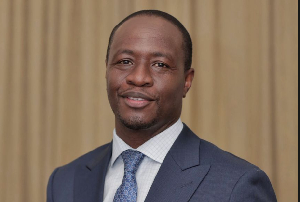Ghana has annually been spending about US$ 6 million on vaccines for the immunization of children, Dr. Gabriel Gbiel Benarkuu, the National Chairman of the Ghana Coalition of NGOs in Health, has announced.
He said 98 per cent of the bill was picked by ‘Gavi’ - a global vaccine alliance, bringing together public and private sectors with the shared goal of creating equal access to new and underused vaccines for children living in the world’s poorest countries.
Speaking to the Ghana News Agency in an interview in Sunyani, Dr. Benarkuu underlined the need for the nation to take steps towards the establishment of a national immunization fund.
He pointed out that, this had become necessary as ‘Gavi’ and other development partners looked increasingly likely to withdraw their support as the country moved from the “lower to middle income bracket”.
It is estimated that about three million deaths are prevented, globally every year, through immunization.
Dr. Benarkuu said an additional 1.5 million deaths could be avoided if the global vaccination coverage improved.
He expressed discomfort with the situation where close to 18.7 million infants - nearly one in five children, worldwide, had been missing routine immunization for preventable diseases like diphtheria, pertussis and tetanus.
“Immunization is one of the most cost-effective ways of saving lives and improving living standards, health and the national economy”, he stated.
He warned that about 20,000 children in the country could die, annually, if they were denied routine immunization services and asked the government to make adequate budgetary allocation to promote child health.
The Coalition, a national umbrella organization of NGOs on health, has been providing public health and safety interventions through evidence-based advocacy, empowerment, innovative programming, organizational development services and social behavioral change.
Health News of Wednesday, 8 June 2016
Source: GNA












